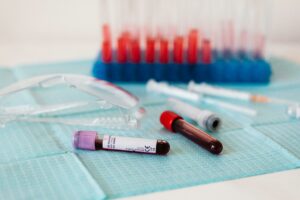Learn the Relationship Between Eating Disorders and Depression

More than nine percent of the global population suffers from an eating disorder. Irresponsible or excessive eating are two extremes that indicate someone may have an eating disorder, which can be dangerous if left untreated.

Living with an eating disorder is painful in and of itself, but it may be significantly more trying if you’re also suffering from depression. There are a lot of folks in this predicament.
Both depression and eating disorders are major mental health issues, and people who suffer from both often feel overwhelmed. So exactly how do eating disorders and depression interact with each other? Which occurs first, the one or the other, if they both cause each other?
You might be surprised by how complex the actual solution is to this question. What we know so far is as follows. Exactly what is the cause of such gloomy feelings? Major depressive disorder, or just depression, is a pervasive and devastating mental illness. One major depressive episode affects more than 8% of U.S. adults each year.
Signs of a serious depressive episode include:
• Negative emotions (such as sadness or anger)
• difficulty focusing
• erratic sleep schedules (either too little or too much)
• irregular eating habits (either too little or too much) that can cause or contribute to weight loss or gain are all symptoms of depression.
• Loss of interest in activities you used to enjoy
• Fatigue or loss of energy
• Feelings of worthlessness or guilt
• Feelings of hopelessness
• Increased thoughts of death or suicide
To qualify for depression, you need to have had these symptoms nearly all the time for at least two weeks. Depression can also be caused by conditions like chronic depressive disorder and bipolar disorder.


